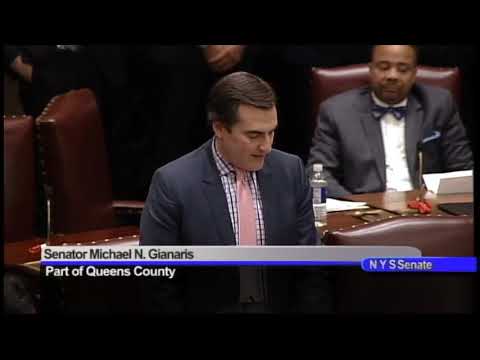
Crain's: ConEd’s soaring prices trigger Attorney General inquiry

ConEdison’s rising utility prices have gotten the attention of New York’s Attorney General and other Albany officials, who are demanding an explanation for the soaring cost of energy bills levied by the public utility giant.
Attorney General Letitia James wrote a letter to ConEd on Monday asking the firm to provide an explanation for the sharp increase in monthly rates and to commit to increasing transparency with consumers on future rate increases. James’ office reported consumers have received bills from ConEd in January and February that cost two or three times more than their previous bills.
“Hardworking New Yorkers shouldn’t have to make sacrifices to keep the lights on or to stay warm during the coldest months of the winter,” James said.
One reason for the increase is the huge number of delinquencies among ConEd’s customer base. When one customer doesn’t pay the monthly bill, ConEd said it spreads the cost out over all the other consumers to make up the difference and support the system. Right now, nearly half a million ConEd customers are in arrears.
Data from the state Department of Public Service shows 482,034 of ConEd’s 3.5 million customers (14%) are behind 60 days or more on their electric bills and owe nearly $1.3 billion dollars. More than 411,000 residential ConEd customers are behind, including the nearly 145,000 facing final termination notices this month. More than 70,300 commercial businesses across the city are behind on their bills, as well.
ConEd spokesperson Allan Drury said the company encourages people to call and make payment arrangements if they fall behind. He noted the firm offers payment extensions, payment agreements, senior services, and monthly installment options.
“What we do is we encourage people all the time to call us, and we put them on a payment plan,” Drury said. “In other words, you spread your arrears out over a number of months. There’s also agencies that help customers pay their bills.”
New Yorkers have been pummeled by high energy prices lately. Overall, the cost of fuel and utilities in the metropolitan area rose by 18.8% last month compared with January 2021, according to the U.S. Bureau of Labor Statistics Consumer Price Index. Electricity is up 20.2% since January 2021, and gas, at 16.7%, is also climbing.
Drury couldn’t confirm whether the rate of delinquencies has ever been this high, but he did acknowledge that customers are hurting financially from the economic upheaval of the last two years.
“Certainly, the pandemic and the resulting recession caused an increase,” he said.
Inflation for basic consumer prices has reached levels not seen since 1982, while the city’s unemployment rate remained stubbornly high at 7.9% in December, more than double non-metro counties.
“As so many households suffer from lost income and higher expenses at this time, the cost of keeping the lights and heat on should not be another burden,” said Mark Levine, Manhattan Borough President. “And we're still waiting on answers from Con Edison about this outrageous billing cycle.”
Consolidated Edison of New York is the city’s main provider of electricity, steam and gas, powering the five boroughs and Westchester. The firm’s outsized influence across New York—which began in 1823 when they were known as the New York Gas and Light Company—has left them as the only game in town when it comes to energy, especially in Manhattan.
“It’s a local monopoly,” said Paul Patterson, an energy analyst at Glenrock Associates, an energy research firm. “You pretty much have to use ConEd to use electricity. You must use the wires of ConEd to get the power to you and that’s how it works no matter where you are.”
The Attorney General isn’t the only leader in Albany seeking an explanation.
Senate Deputy Majority Leader Mike Gianaris fired off a letter to the Public Service Commission, the state entity that regulates energy prices, to investigate the rate hikes. Gianaris claimed some of his Queens constituents have seen their energy bills increase by as much as 300%.
Gov. Kathy Hochul on Feb. 22 penned a letter to ConEd that asked the firm to review its billing practices. Hochul then announced a collection of measures and subsidy programs from the state to lower energy costs.
But there’s only so much the state and ConEd can do to lower energy prices that are dictated by the global fuel market. The Public Service Commission noted that it does not regulate commodity or supply prices, while Drury attributed the rise in consumer bills to market forces that customers must cover.
“The changes in customer bills in January were mainly due to the supply cost of the energy commodity,” Drury said. “We buy the energy on the wholesale market and provide it to customers at the same price we paid. Energy prices are volatile and can be affected by factors such as weather, demand, and economic trends.”
Roughly 70% of New York City’s electricity comes from fossil fuels—including 45% from natural gas—leaving the five boroughs hostage to fluctuations in the oil and natural gas markets. ConEd’s local power plants that produce electricity rely exclusively on natural gas, which they purchase on an open market. When the market price of natural gas increases—as it did by a record 70% in January—the two-bedroom apartment in Bedford-Stuyvesant foots the bill.
“Higher natural gas prices are leading to higher electricity prices and that’s what’s driving it,” said Patterson.
But one energy expert believes ConEd can’t simply blame the market and that the company should’ve been better prepared for volatile winter inflation that was forecast five months ago.
Richard Berkley, executive director of the Public Utility Law Project of New York, a nonprofit watchdog and public interest law firm, said the federal Energy Information Administration (EIA) warned as early as October 13, 2021 that U.S. households would pay significantly more in 2022 for propane, heating oil and natural gas. This warning was sent to utilities and regulators alike and came on the heels of Hurricane Ida pummeling natural gas suppliers on the Gulf Coast in Aug. 2021 and the “Big Freeze” disrupting Texas’ natural gas production in Feb. 2021.
Berkley said ConEd should’ve bought advance contracts to protect itself and customers from the winter market shocks.
“[ConEd’s] required like all utilities to use its crystal ball, or the forecast from the feds, to execute a hedging strategy to protect consumers from increases in price,” Berkley said. “They have a duty to do that to the best of their ability and they might not have done that in this case. If you look at your bill, you’d be right to assume they didn’t do that.”



